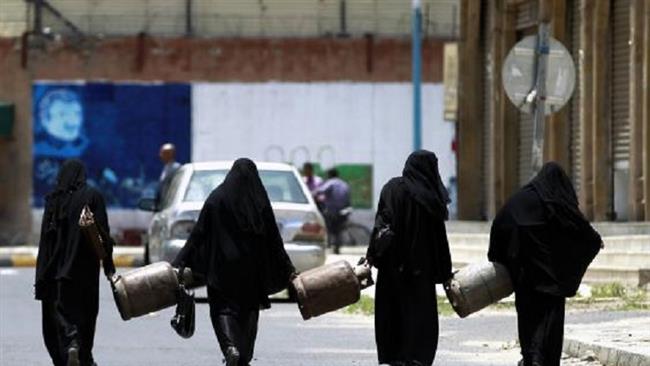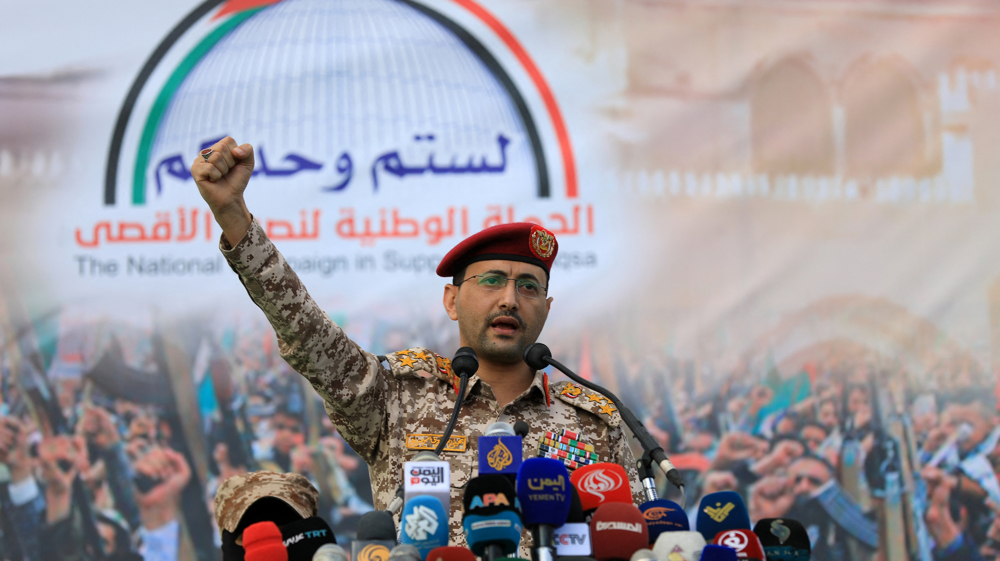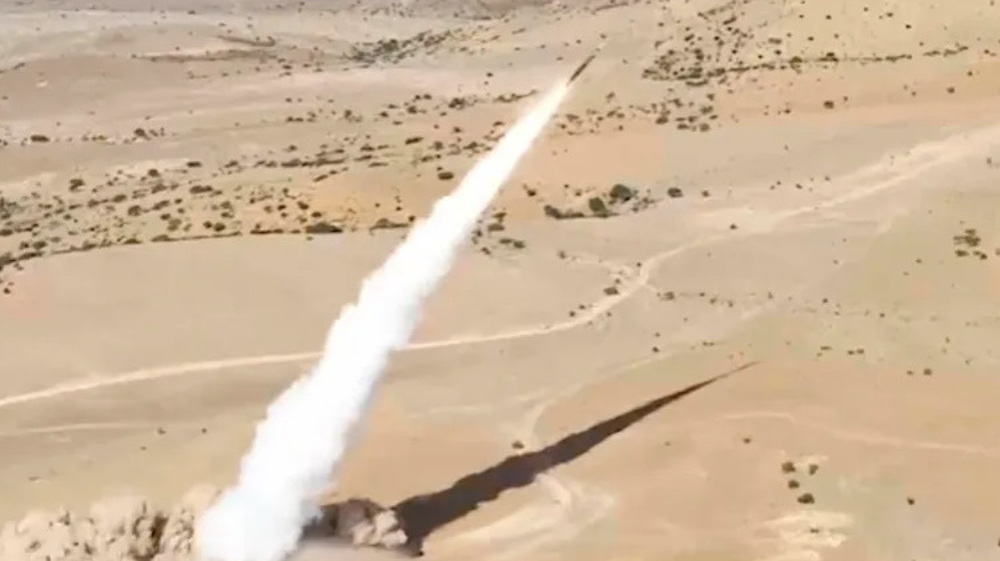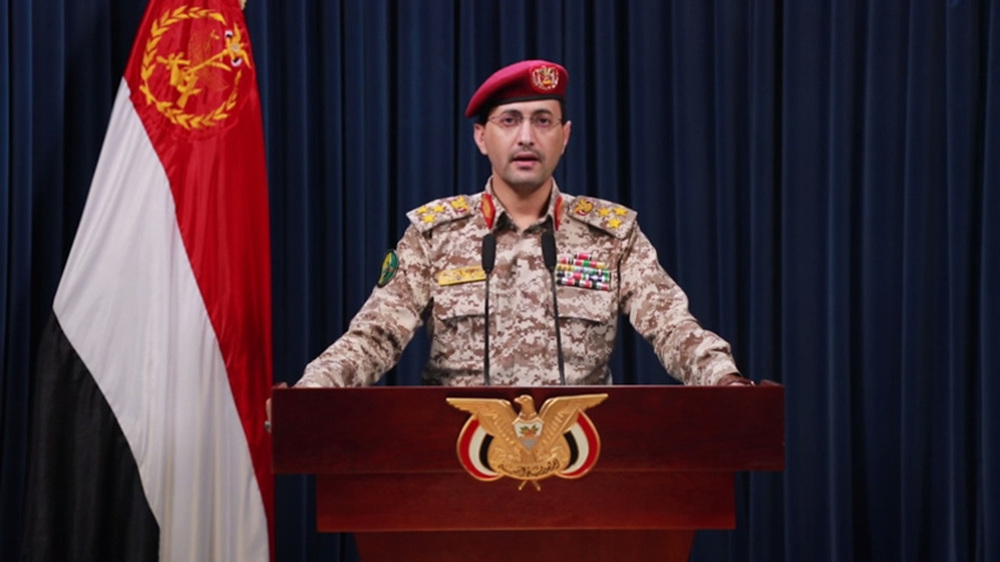Red Cross buying fuel to pump clean water in Yemen
The Red Cross says it is making a "stop-gap" purchase of fuel to provide clean water for one million people in the Yemeni cities of Hudaydah and Ta'izz for one month amid the ongoing Saudi-led war on the impoverished Arab country.
Iolanda Jaquemet, spokeswoman for the International Committee of the Red Cross (ICRC), said on Wednesday that the ICRC was buying 750,000 liters of fuel for the two cities, calling it "an exceptional stop-gap measure."
"As a last resort and in light of the large and urgent needs...we are purchasing fuel to supply the urban water corporations in Hudaydah and Ta'izz with fuel, enough to operate their water pumps for one month," Jaquemet said.
She said the fuel shortage in Yemen had become "critical" under the Saudi-led blockade, which has left water systems in at least nine Yemeni cities without fuel to run pumps.
According to the spokeswoman, the lack of fuel has a "cascading impact on several vital sectors" as prices have risen sharply.
Fuel is needed to transport goods and run hospital generators and maintain cold chains for vaccines and medicines. It is also required to maintain water and sanitation as well as health and food sectors.
She also called on Saudi Arabia to totally lift the siege on Yemen to allow much-needed aid to reach the impoverished country. "Humanitarian aid has started coming in and it's a very welcome first step but we need commercial imports."
ICRC trucks have brought medical material into Yemen this week, mainly badly needed dialysis material, she said, adding that a shipment of kits for treating trauma patients is expected to berth in Aden shortly. "These war-wounded kits will enable surgeries for over 400 people and are to be distributed to 10 hospitals and 15 field hospitals across north and south Yemen."
The ICRC is stepping up assistance to combat an outbreak of diphtheria in Ibb governorate, including protective equipment for hospital staff to avoid the spread of the highly-infectious respiratory disease, she said.
The World Health Organization (WHO) said on Tuesday that some suspected cases and 20 deaths have been recorded in 13 governorates, more than 80 percent in Ibb.
Riyadh imposed a tight blockade on nearly all Yemeni air, land and sea ports on November 6, prompting human rights and charity groups to raise the alarm over the deteriorating situation in the country as people, particularly children, are increasingly suffering from the lack of food and medical supplies.
Following urgent calls for lifting the blockade, the Saudi-led coalition announced on Wednesday the reopening of the Hudaydah port and the Sana’a airport for humanitarian aid. But only a few ships have docked at Hudaydah and the nearby port of Salif since the blockade was eased.
A senior UN official recently said Saudi Arabia’s slight easing of its blockade on Yemen was not enough to stop Yemen from plunging into famine, urging further measures to alleviate the humanitarian crisis. The UN has warned that shrinking fuel stocks and the dire humanitarian situation across Yemen are pushing at least seven million people toward famine.
More than 12,000 people have been killed since the onset of Saudi Arabia's deadly campaign against Yemen in March 2015. Much of the Arabian Peninsula country's infrastructure, including hospitals, schools and factories, has been reduced to rubble due to the war.
According to the latest WHO figures, Yemen is also reeling from a cholera epidemic, with 960,065 suspected cases and 2,219 deaths reported since April.
The UN says the country is experiencing "the worst humanitarian crisis on the planet."
Iran’s economy grew 2.7% y/y in Sep quarter: CBI
VIDEO | Freelancers in Gaza strive to stay online amid genocide
Mikati demands Israel's withdrawal from south Lebanon
Yemeni army strikes Israeli military sites with drones
‘Clock ticking’: UNRWA slams unjustifiable killing of children in Gaza
BP to be sued in Britain for supplying oil to Israel
VIDEO | Press TV's news headlines
Israeli strikes on north Gaza hospital ‘extremely dangerous, terrifying’: Director











 This makes it easy to access the Press TV website
This makes it easy to access the Press TV website